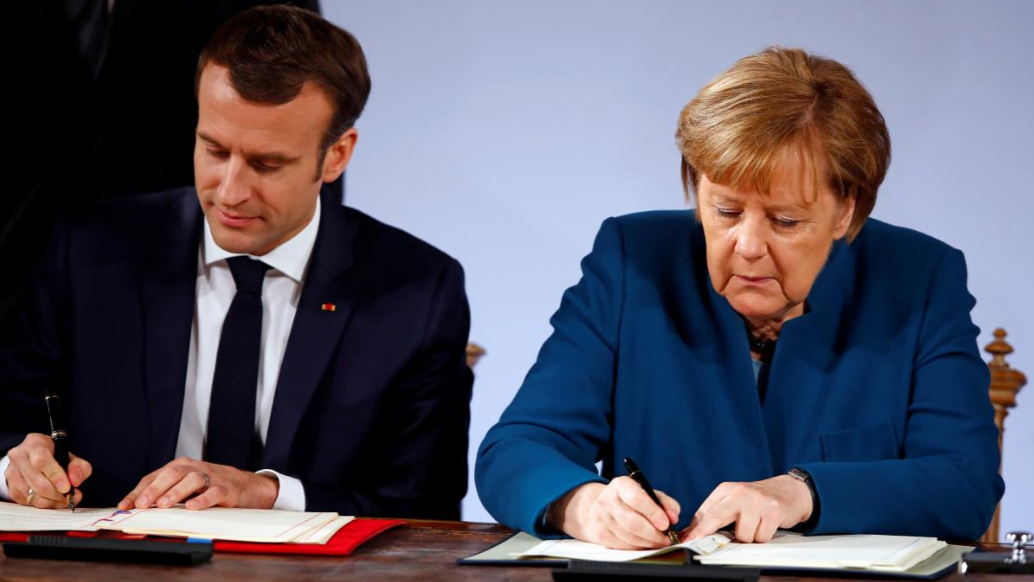France, Germany try to 'show the way forward' for embattled EU project

The leaders of France and Germany signed a new treaty on Tuesday to update their 1963 post-war reconciliation accord, aiming to reinvigorate the EU's main axis as growing euroskeptic nationalism tests the bloc's cohesion.
At a warm ceremony in the German border city of Aachen, a historical symbol of European concord, German Chancellor Angela Merkel and French President Emmanuel Macron sought to show they are ready to give fresh leadership to the troubled EU project.
The leaders want the 16-page Aachen Treaty, negotiated over the past year to update the 1963 Elysee Treaty of post-war reconciliation, to give an impulse to European unity that has been strained by Brexit, immigration and the eurozone crisis.
"We are doing this because we live in special times and because in these times we need resolute, distinct, clear, forward-looking answers," said Merkel, noting Aachen was home to Charlemagne, whom she dubbed "the father of Europe."
Macron added, "At a time when Europe is threatened by nationalism, which is growing from within, when Europe is shaken by the pains of Brexit and worried by global changes that go far beyond the national level... Germany and France must assume their responsibility and show the way forward."
Short on detail, the treaty extension commits to closer foreign and defense policy ties but does little to push forward eurozone economic reform.
Sabine von Oppeln, expert on Franco-German ties at Berlin's Free University, said of the slow progress on eurozone reform, "The German side is not responding to Macron's ideas, which are of course also driven by national interests."
"This could be an opportunity for a real renewal of cooperation but I fear the chance has been lost," she added.
Franco-German treaties are supposed to be milestones in the process of European integration, paving the way for the bloc as a whole to deepen cooperation.
"Today Europe needs a revival of faith in the meaning of solidarity and unity, and I want to believe that enhanced Franco-German cooperation will serve this objective," said European Council chief Donald Tusk, who attended the ceremony with European Commission President Jean-Claude Juncker.
As Merkel waited to welcome Macron at the Aachen city hall to sign the updated treaty, some people gathered outside with blue and yellow EU balloons.
Another group wore the yellow vests adopted by members of a grassroots rebellion against Macron.
Euroskeptics also voiced their opposition. Alexander Gauland, leader in parliament of the Alternative for Germany (AfD), said: "The EU is now deeply divided. A German-French special relationship will alienate us even further from the other Europeans."
The original Elysee Treaty was signed in 1963 by Chancellor Konrad Adenauer and President Charles de Gaulle, who in the same year vetoed the British application to join the European Community, the precursor of today's EU.
(Cover: French President Emmanuel Macron and German Chancellor Angela Merkel sign a new agreement in Aachen, January 22, 2019.